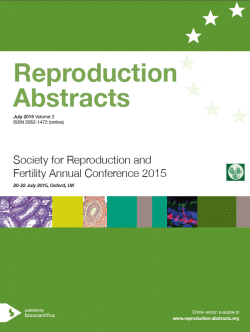Searchable abstracts of presentations at key conferences on reproductive biology and medicine

Society for Reproduction and Fertility Annual Conference 2015
Oxford,
UK
20 Jul 2015 - 22 Jul 2015




